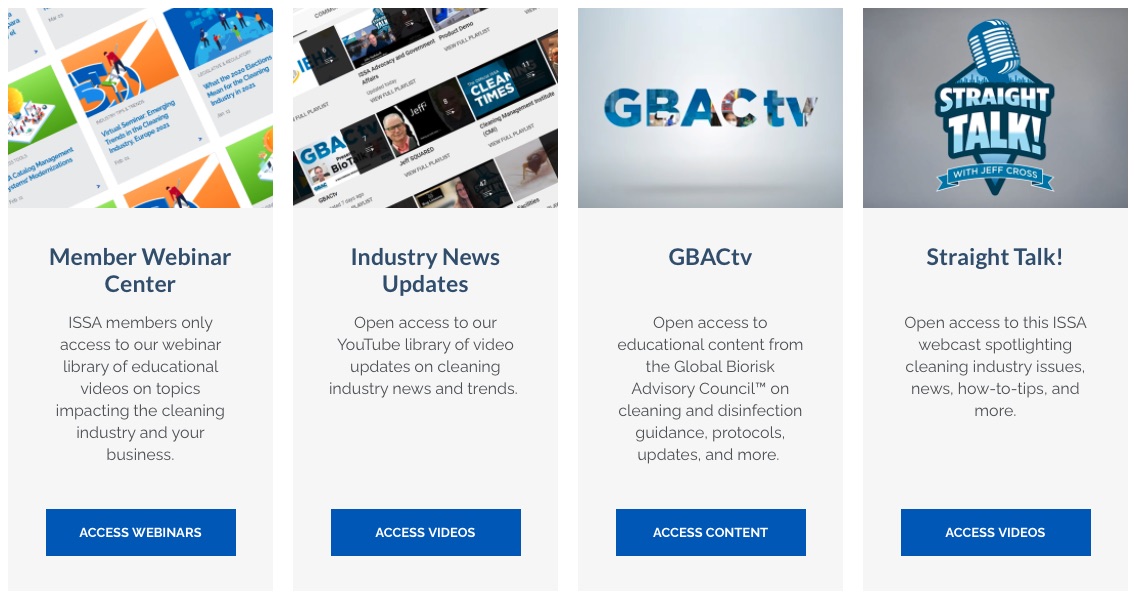Articles
Creating More Productive Cleaning Schedules
Categories: Business Management, Cleaning Best Practices
By Caden Hutchens | October 10, 2018 << Back to Articles
In this digital age, the use of technology plays an unprecedented role in solving issues like staff productivity or impressing clients.
According to a 2016 study by the Pew Research Center, “Smartphone Ownership and Internet Usage Continues to Climb in Emerging Economies,” an overwhelming majority of the world’s population claims to own some sort of mobile device, be it a smartphone or tablet. In some places of the world, smartphone ownership rates went up between 26 to 42 percent in three years.
This surge of tech ownership continues to feed new technologies into businesses, as well as homes, to simplify tasks and make life more enjoyable. Job scheduling technology can do exactly that for building service contractors (BSCs) and facility managers.
For decades, technology has gradually revolutionized the way managers in the cleaning industry stay connected to their employees and clients. Regardless of the extent of your technological background, task management has never been easier to organize, assign, and track.
There are many benefits to scheduling technology that can save BSCs and facility managers countless hours of work and worry. To name a few, clients can be kept in the loop about contract fulfillment responsibilities, costs may decrease, and cleaners can quickly know what work needs to be done.
Here are several more benefits and how they impact both BSCs and facility managers.
- Employee productivity
Job scheduling technology provides an easier way for employees to access and manage work schedules without having to scan through company emails, spreadsheets or charts, and work-related texts. Employees can simply pull up their schedules on mobile devices from any location.
Matt Straz, in his April 2016 Entrepreneur article, “Want a Better Employee Experience? Start by Simplifying Tech,” suggests that when companies stick with a single technology platform, it can prevent employees from becoming overwhelmed. “When employees need to access programs for work management, communication, benefits, calendars, and reminders,” Straz says, “they do not want to be lost in a maze of different resources.
Job scheduling technology gives BSCs and facility managers the power to submit what is to be done for a certain location, how long their cleaners should spend on the task, and when the task should be complete. Even automatic reminders can be set in order to decrease the possibility for errors or forgotten work.
These benefits can also reduce the need for employees to interrupt management with questions about specific job details. In return, this empowers managers to focus more of their efforts and time on other urgent matters.
- Work accountability
Have clients ever asked you to show them how you are fulfilling your cleaning contract? Has miscommunication with clients ever prevented your cleaning staff from coming in and performing a task?
When a client asks for proof of contract fulfillment, you can print out your online job schedules and provide adequate documentation to show what your cleaning staff has done for the client’s facilities. Better yet, some job scheduling technologies allow clients to have direct access to job calendars so they can see on their own time whether the work is complete.
BSCs and facility managers can also send advance notifications to customers through job scheduling software so both parties can easily work around each other’s schedules. This also promotes frequent communication with clients so they can know what is happening at their service locations at all times.
A number of job scheduling technologies provide reports and metrics to give BSCs and in-house service providers a snapshot of how well their employees are performing. Job schedule results can be reviewed for each month and managers can detect anything that was missed or completed late. This information can provide a clear direction for what managers need to address and highlight in future employee trainings.
- Business profitability
There are several benefits that can impact business profitability as BSCs and facility managers integrate job scheduling technology into their operations:
- Cleaning assignments are less likely to be forgotten.
- Costs drop by going paperless.
- Scheduling time and communicationis faster.
Benefits like these generate more revenue or lessen expenses for buildings. Customers may be impressed by improved service and unnecessary business expenses may be removed. Facility managers and BSCs can then direct existing cash flow toward crucial parts of a cleaning operation and helping it grow.
The End Result
BSCs and facility managers must ensure their cleaning efforts continually evolve to match technology trends in the outside world. Job scheduling technology is one effective way to unlock greater potential for increased employee productivity, client satisfaction, work accountability, and profit-earning capability.
This article originally appeared in the November 2016 edition of Cleaning & Maintenance Magazine.
About the Author.
Caden Hutchens is vice president of CleanTelligent Software, a quality control and janitorial software solution that includes a mobile surveys feature. He is responsible for overseeing operations for customer support, marketing, programming, and sales. Learn more at www.cleantelligent.com.





